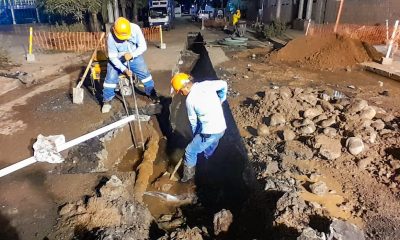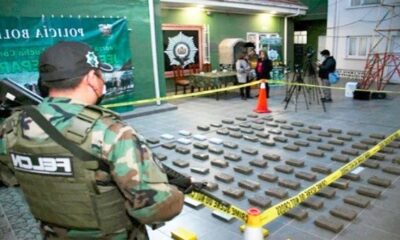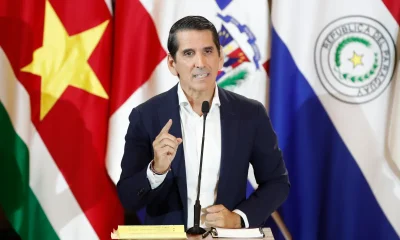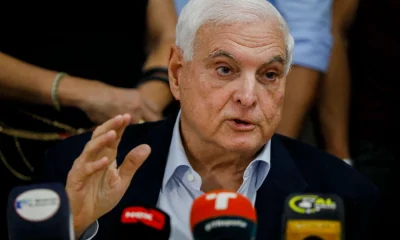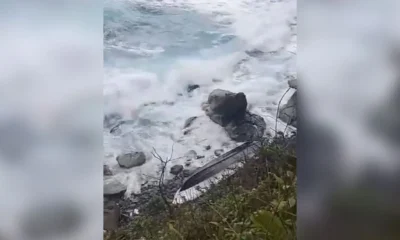Central America
Central American mayors visit El Salvador to discuss regional tech hub and municipal collaboration
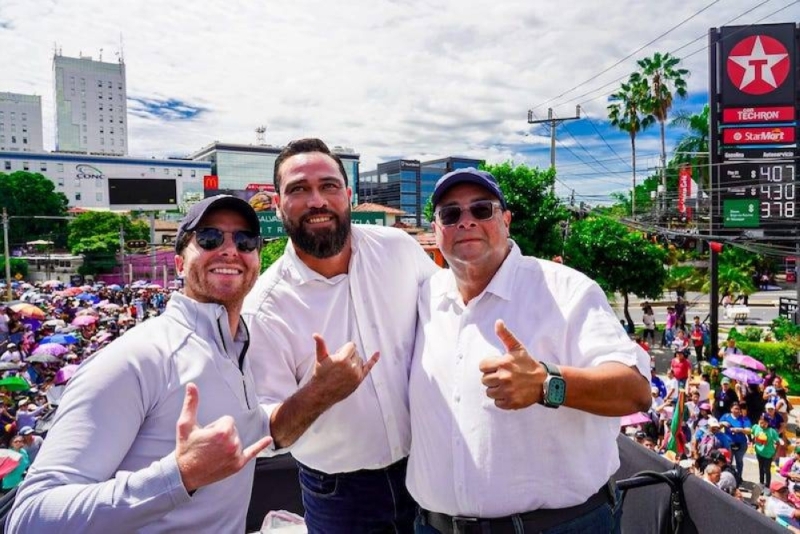
Jorge Alejandro Aldana Bardales, the mayor of Tegucigalpa, Honduras, and Mayer Mizrachi, the mayor of Panama City, are currently visiting El Salvador. On Thursday, August 1, they took the opportunity to participate in the Conga Bus, which led the Post Office Parade marking the start of the patronal festivities in the San Salvador district within the municipality of San Salvador Centro.
During their visit, the Central American mayors are scheduled to meet with Mario Durán, the mayor of San Salvador Centro, and Diego Miranda, the mayor of San José, Costa Rica. The agenda will focus on issues such as mobility, vulnerability, investment promotion, job creation, and most notably, the potential to develop a technological hub in Central America from local government efforts to attract digital investments in the region.
Jorge Aldana Bardales, mayor of the Central District of Honduras, which includes Tegucigalpa and Comayagüela, shared this information on his social media. Previously a journalist and activist, Aldana Bardales, who was elected mayor in 2021, has announced his intention to seek re-election for another term.
Meanwhile, Panamanian mayor Mayer Mizrachi Matalon has already met with Luis Rodríguez, the director of the San Salvador Metropolitan Area Council (Coamss). Rodríguez assured Mizrachi that he has a strong ally in Coamss.
“The operational system of the Salvadoran government is admirable. Efficiency and clearly defined priorities consistently over time,” Mizrachi commented after viewing project models during the meeting with Coamss’s director. Mizrachi, who has been Panama’s mayor since July 1, previously visited the “Chivopets” veterinary hospital founded in El Salvador, which he plans to replicate in Panama.
Mizrachi, a businessman who won the Panama City mayoral election in May 2024 through a novel audiovisual and viral video campaign, presents himself on X as an entrepreneur and “Chacalde”—a blend of the words chacal and mayor. He is the political nephew of former Panamanian president Ricardo Martinelli, and recently, a Panamanian high court dismissed a case related to money laundering known as “Criptext,” which had been open for nine years.
Central America
UN complaint filed against Costa Rica over detention of migrant children
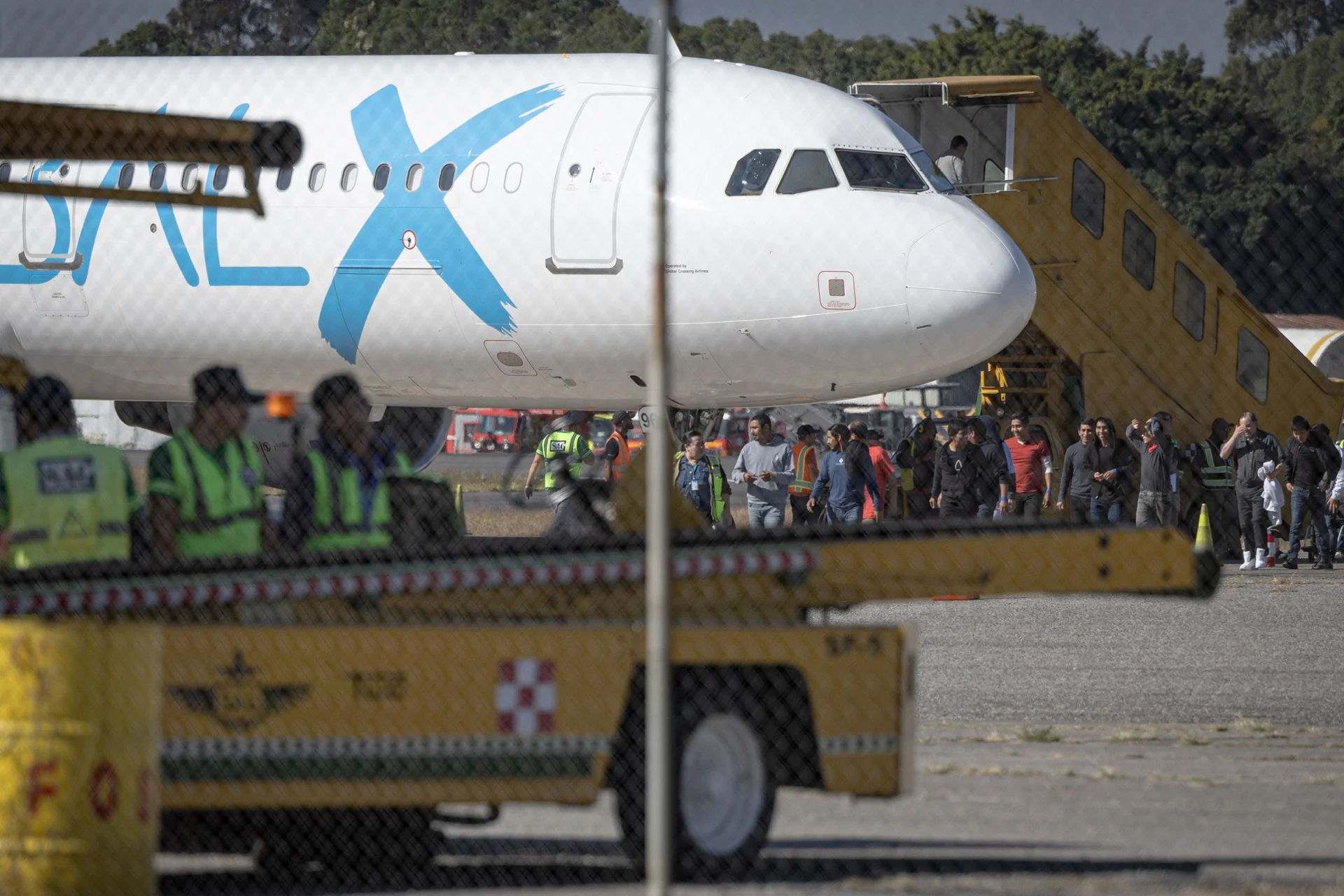
A group of human rights lawyers has filed a complaint against Costa Rica, alleging that the Central American nation violated the rights of dozens of migrant children by detaining them in a rural facility for nearly two months after they were deported from the United States in February.
The children — some as young as 2 years old — are part of a larger group of migrants, mainly from Afghanistan, China, Russia, and other Asian countries, who were deported from the U.S. as part of a broader immigration crackdown under former President Donald Trump.
Many had hoped to seek asylum in the U.S. and expressed fear about returning to their home countries. Instead, they were dropped off in Costa Rica and Panama, where they do not speak the local language. Originally intended as brief transit points, these countries have become a state of limbo, with migrants stuck for over 50 days.
Critics argue this is part of a U.S. strategy to “export” its deportation process, while human rights advocates warn that Costa Rica and Panama are becoming a “black hole” for deported migrants.
In Costa Rica, around 200 migrants — including 81 children — were taken to a rural migrant processing center near the border with Panama and held in a building that once served as a factory.
The complaint, filed Thursday night by the Global Strategic Litigation Council (GSLC) and other human rights groups, was submitted to the UN Committee on the Rights of the Child, alleging that Costa Rica breached international agreements under the Convention on the Rights of the Child.
Silvia Serna Román, one of the attorneys involved, said the migrants were detained without legal status and had no access to education or mental health services in their native languages. The prolonged detention is raising concerns about long-term psychological effects on the children, as many parents report signs of emotional distress such as isolation and sadness.
“These children are in a very crucial stage of development, and they’ve already fled difficult conditions in their home countries,” Serna Román said on Friday. “Now, they’re being subjected to prolonged detention and inhumane treatment. Parents are worried.”
Serna Román also said the migrants have had little access to legal counsel. The Costa Rican government has stated that detainees can leave the facility if they agree to return to their countries of origin or apply for asylum in Costa Rica.
Central America
Nicaraguan Exiles to Mark 7th Anniversary of 2018 Protests with Global Commemorations

The Nicaraguan opposition in exile announced on Thursday that it will commemorate the seventh anniversary of the April 2018 protests against the government of President Daniel Ortega and his wife, Rosario Murillo, with events in Costa Rica, the United States, and several European countries.
The commemorative activities—which will call for justice for the victims, as well as freedom and democracy for Nicaragua—will include religious services, public forums, cultural fairs, and other public gatherings, according to official announcements.
In April 2018, thousands of Nicaraguans took to the streets to protest controversial reforms to the social security system. The government’s violent response quickly turned the demonstrations into a broader call for the resignation of President Ortega, who is now 79 and has been in power since 2007.
The protests resulted in at least 355 deaths, according to the Inter-American Commission on Human Rights (IACHR), although Nicaraguan organizations claim the toll is as high as 684. Ortega has acknowledged “more than 300” deaths and maintains the unrest was an attempted coup d’état.
International
Arsenal stun Real Madrid at the Bernabéu to reach Champions League semifinals

Arsenal enjoyed a “historic night” on Wednesday after defeating Real Madrid 2-1 at the Santiago Bernabéu, knocking them out of the Champions League quarterfinals, midfielder Declan Rice said.
“It’s such a special night for this club, a historic night for this club,” said Rice, who scored twice in the first leg in London, speaking to TNT Sports.
The English international was named Man of the Match in both legs — the 3-0 win in London and the second leg in Madrid.
“It’s amazing. I knew we were on an upward trajectory and we’ve done incredibly well in this competition. We deserve it and we have full confidence in our coach. Reaching the semifinals is unbelievable,” Rice added.
-

 Central America4 days ago
Central America4 days agoPetro questions Ecuador’s vote, cites reports of military control and arrests
-

 International3 days ago
International3 days agoArsenal stun Real Madrid at the Bernabéu to reach Champions League semifinals
-

 International3 days ago
International3 days agoDominican ‘False Hero’ Arrested for Faking Role in Nightclub Collapse That Killed 231
-

 Central America3 days ago
Central America3 days agoNicaraguan Exiles to Mark 7th Anniversary of 2018 Protests with Global Commemorations
-

 International4 days ago
International4 days agoBogotá residents line up for yellow fever vaccine amid national alert
-

 International3 days ago
International3 days agoDeSantis’ immigration crackdown sparks alarm in Venezuelan Communities in Doral
-

 International1 day ago
International1 day agoACLU seeks emergency court order to stop venezuelan deportations under Wartime Law
-

 International4 days ago
International4 days agoMexico refuses to restore ties with Ecuador while Noboa remains in office
-

 Central America1 day ago
Central America1 day agoUN complaint filed against Costa Rica over detention of migrant children
-

 International4 days ago
International4 days agoColombia: Search continues for missing limb of italian scientist found dismembered
-

 International5 hours ago
International5 hours agoThousands rally nationwide against Trump’s threat to U.S. democracy






























